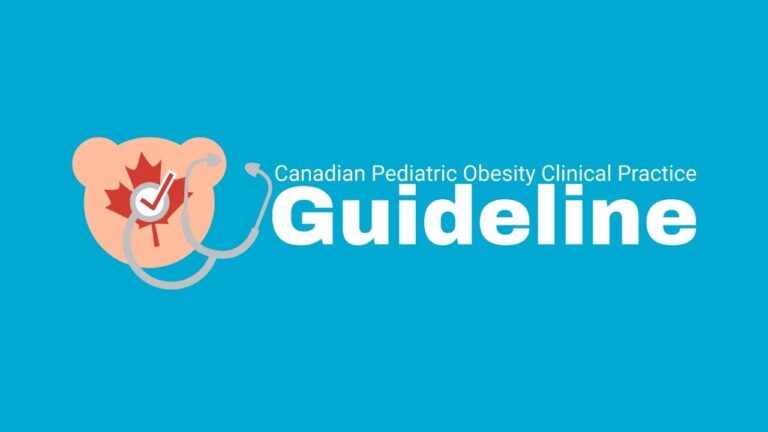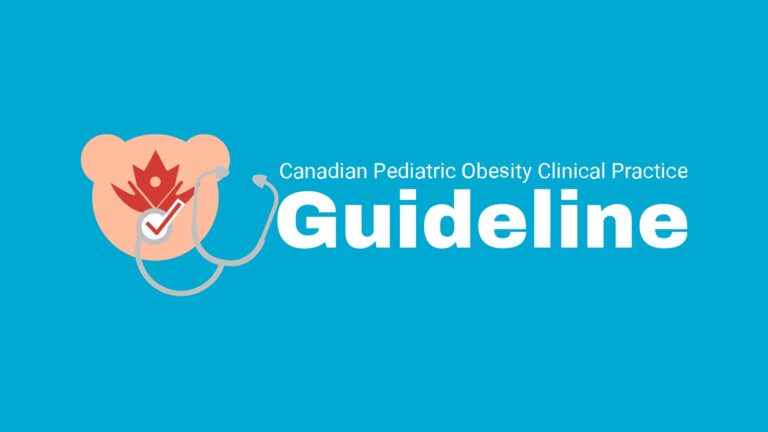By Dr. Sanjeev Sockalingam, Scientific Director, Obesity Canada
When we first released the Canadian Adult Obesity Clinical Practice Guidelines in 2020, the landscape was already shifting. Medications were gaining momentum—not as shortcuts to weight loss, but as tools to help treat obesity as the chronic, relapsing disease science has long shown it to be. In 2022, we updated the pharmacotherapy chapter to reflect emerging evidence and evolving treatment options.
Today, we’re building on that foundation with a new major update.
We’re proud to share the newly updated pharmacotherapy chapter, published today in the Canadian Medical Association Journal (CMAJ). These updates reflect the most current scientific evidence and reaffirm a central truth: obesity medications can play a vital role in improving the health and quality of life for people living with obesity.
This update reflects not just new evidence, but a stronger alignment with how real-world care should be delivered: timely, grounded in evidence, and focused on outcomes that matter most to each individual living with obesity.
We’re moving beyond BMI
We’ve long known that relying only on BMI isn’t enough to guide care. The new guidelines recommend looking at the full picture—factors like waist circumference, health complications, and body composition—to decide when medication may be appropriate. And those decisions should always respect what matters most to the person— their values, preferences and desired outcomes.
More options. More personalization.
The latest chapter update includes two newly approved medications—tirzepatide and setmelanotide—joining four other approved medications in Canada for obesity. That means that healthcare professionals now have six options they can use to support patients based on their health needs.
Each of these treatments works differently, and the right choice depends on the person—their biology, their preferences, their lived experience—and the health outcomes they’re working toward.
The guidelines also provide specific guidance on using pharmacotherapy alongside complications such as cardiovascular disease, heart failure with preserved ejection fraction (HFpEF), type 2 diabetes, liver complications (MASH/MAFLD), obstructive sleep apnea, and osteoarthritis. This guidance helps clinicians tailor treatment more precisely—matching science to the real-world needs of the people they support.
Medications support overall health, not just weight loss
Managing obesity is not about appearance. It’s about health. And health looks different for everyone.
The goal of obesity medications is not to chase a number on the scale, but rather to support better outcomes across the board—physical health, mental health, mobility, energy, and more.
Medications are one pillar of treatment that can be combined with behavioural and psychological support, and, for some, surgical interventions. They’re not shortcuts—they’re one part of a comprehensive, long-term strategy for treating a complex, chronic disease, just as we use medications for other chronic conditions like diabetes or high blood pressure.
Access to treatment must catch up to the science
We have safe, effective treatments for obesity—and clear guidance on how to use them. But most Canadians still can’t access them.
Fewer than 20% of private drug plans cover obesity medications, and public plans don’t cover them at all. This gap continues to fuel deep inequity, denying people care for a chronic disease simply because of how it’s been misunderstood and devalued.
Until we see obesity for what it is—not a failure of willpower, but a complex, chronic disease—we’ll continue to leave people behind.
We can, and must, change that.
Explore the full Clinical Practice Guideline
The full Canadian Adult Obesity Clinical Practice Guideline—including this latest pharmacotherapy chapter—are available on our website. Whether you’re a healthcare professional or someone exploring available treatments for obesity, the guidelines are a trusted, evidence-informed resource to support your journey.
Looking ahead
This update is another step toward reshaping how we see, support, and understand people affected by obesity, from a one-size-fits-all approach to one that’s person-centered.
It equips healthcare professionals with the latest evidence to offer better care, and empowers people living with obesity to have more informed conversations about treatment options.
There is still more work to do—but with every update, we move closer to a system that recognizes obesity for what it is and treats it with the care it deserves.




